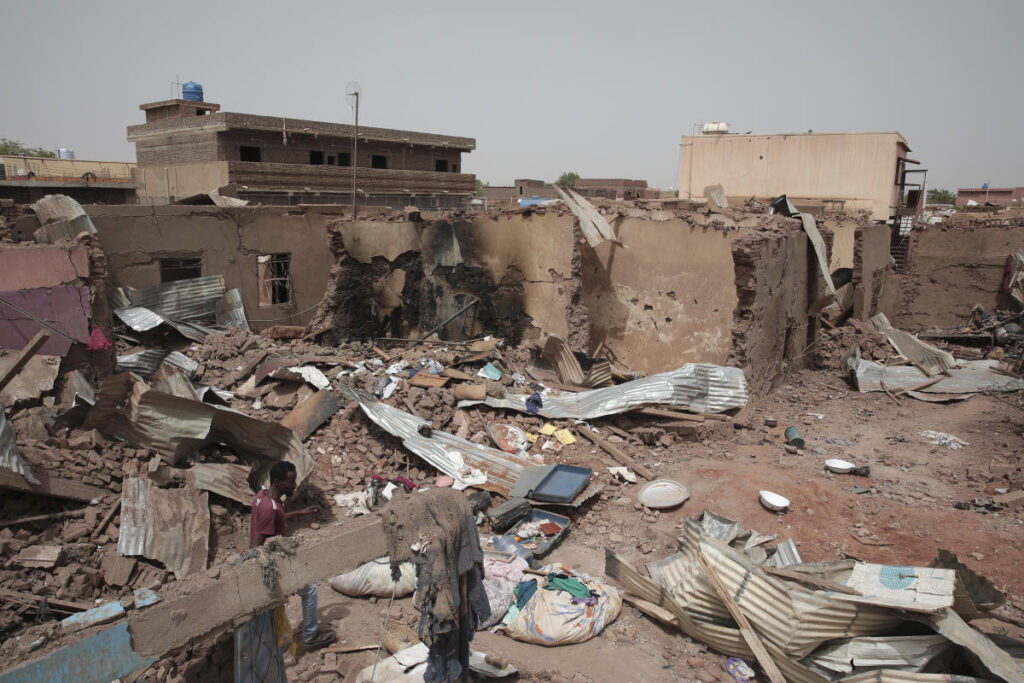The ongoing conflict in Sudan, which erupted in mid-April 2023 between the military and paramilitary forces, has led to devastating consequences, including the deaths of over 24,000 people and a humanitarian crisis resulting in massive displacement. During a recent U.N. Security Council meeting, Rosemary DiCarlo, the U.N. political chief, held external actors responsible for exacerbating the violence, accusing them of “enabling the slaughter.” While she refrained from naming specific countries providing military support, her call for accountability highlights the critical role that international involvement plays in prolonging the conflict. The violence, now particularly acute in the western region of Darfur, evokes painful memories of past atrocities and has pushed Sudan to the brink of famine, according to U.N. assessments.
The conflict stems from long-rooted tensions between rival military factions, particularly between the Sudanese Armed Forces and the paramilitary Rapid Support Forces (RSF). The RSF’s latest assaults have included horrific acts against civilians, including massacres, sexual violence, and general lawlessness. Reports from non-governmental organizations have described these attacks as some of the most extreme violence witnessed in the region over the last year and a half. DiCarlo condemned the actions of both the RSF and the military, stressing the need for immediate negotiations. However, both sides remain entrenched in their belief that a military victory is attainable, a misconception further fueled by outside military assistance and arms supplies.
The significant external support driving the conflict includes allegations that the United Arab Emirates is supplying arms to the RSF—a claim the UAE denies vehemently. Additionally, the RSF has reportedly received backing from the Russian Wagner Group. Meanwhile, Sudan’s military leadership, headed by General Abdel Fattah Burhan, maintains close ties with Egypt, and there are unverified claims regarding potential military cooperation with Iran. The flow of weapons and resources into Sudan from neighboring countries, such as Chad and Libya, continues to empower armed groups, complicating efforts for peace. DiCarlo emphasized that until external actors cease their military support, a sustainable resolution to the conflict will be challenging.
Against this backdrop, DiCarlo has called for increased international engagement to protect civilians and facilitate peace talks. She mentioned the U.N. special envoy’s plans for renewed proximity talks aimed at ensuring civilian protection commitments. However, past attempts to engage the military in dialogue have failed, as they boycotted discussions in Geneva while the RSF participated. The ongoing reluctance of the military to engage in meaningful negotiations is a significant barrier to achieving peace, which is exacerbated by the prevailing conflict dynamics and external influences.
The humanitarian situation has escalated alarmingly since the outbreak of warfare, with over 11 million people displaced, leading to a severe refugee crisis. The crises have seen about 3 million individuals fleeing to neighboring countries, particularly Chad, which now hosts over 710,000 Sudanese refugees. Reports of intensifying violence and atrocities in regions like Gezira and West Darfur are driving additional waves of people from their homes. The U.N. humanitarian office, represented by Ramesh Rajasingham, expressed concern over the plight of displaced populations and the alarming rise in hunger and malnutrition rates among children, with famine conditions being confirmed in camps, notably in Zamzam near El Fasher.
As the situation unfolds, the urgent call for international intervention cannot be overstated. The humanitarian crisis, characterized by extreme food insecurity and dislocation, necessitates immediate action from the global community to alleviate suffering and support peaceful resolution initiatives. Rajasingham’s warnings about increasing hunger in other regions, such as South Kordofan, echo the need for decisive measures to address the dire needs of affected populations. The lack of actionable responses could lead to further decline in humanitarian conditions, making proactive involvement essential to avert a deeper catastrophe. The international community stands at a critical juncture where its choices will significantly impact Sudan’s future trajectory and the well-being of its people.

